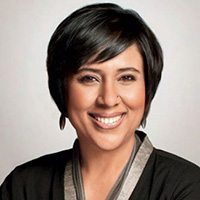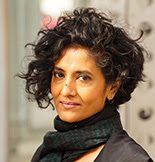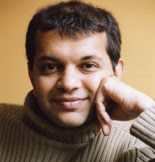6367 people reached on Lassi with Lavina FB page
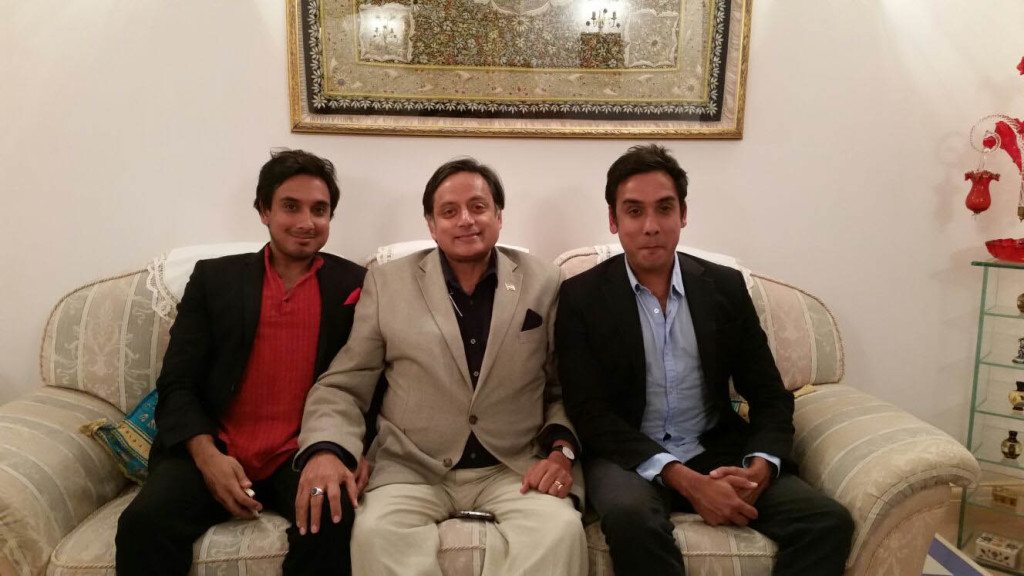
It’s Tharoor Time at the IAAC Literary Festival in New York
[dropcap]C[/dropcap]an you ever have too much Tharoor? For avid readers, it can never be enough. Happily, the upcoming IAAC Lit Fest has not one, not two but three Tharoors! It’s being billed as a Trio of Tharoors and promises to make for some intriguing conversations: Shashi Tharoor and his twin sons Ishaan and Kanishk Tharoor at the NYU Kimmel Center on October 9. It is just one of many literary encounters during the three day fest.
Shashi Tharoor is the Member of Parliament for Thiruvananthapuram and the Lok Sabha Chairman of the Parliamentary Standing Committee on External Affairs. He has previously been the Minister of State for External Affairs and before that was the Under-Secretary General of the UN. Through all this he has always managed to write, being the author of several books including ‘Reasons of State,’ ‘The Great Indian Novel’, ‘Show Business’ and ‘Midnight to the Millennium’. He’s also written numerous articles, short stories and commentaries, and won several awards including the Commonwealth Writers’ Prize.
Both the younger Tharoors have formidable writing careers at a young age: Kanishk is a writer and broadcaster and his debut collection ‘Swimmer Among the Stars: Stories’ has created quite a buzz. His short fiction has won several prizes and been nominated for the National Magazine Award. He is the presenter of ‘Museum of Lost Objects’, a 10 part BBC radio series on the cultural destruction in Iraq and Syria.
Ishaan is a foreign affairs writer at Washington Post, where he heads the WorldViews blog and writes on many issues. Earlier he was a writer and editor at Time Magazine, first in Asia and then in Hong Kong. You can always expect something thought-provoking and insightful from his pen.
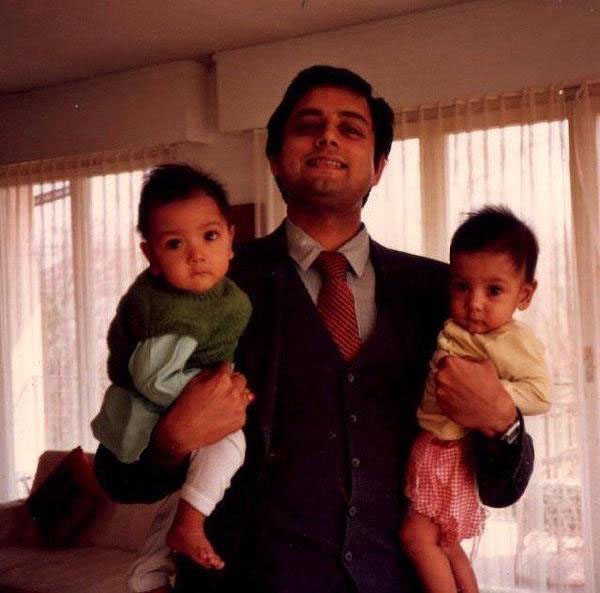
[dropcap]T[/dropcap]here’s an endearing picture from Shashi Tharoor’s album of the beaming father with his twins, when they were just a year old. Did he whisper writing magic spells and literary chants into their ears? Or is writing just in their genes?
Shashi Tharoor, whom I have interviewed several times over the years, has had a deep connection to reading and writing ever since he was a child, with a symbiotic relationship with books and the written word. In an interview many years ago he had told me, “I was a pretty asthmatic child. From a young age I was a bit of a sufferer – I was obsessed with cricket but I didn’t have as many opportunities for physical and outdoor activity as other kids and was often stuck in bed wheezing and so the only distractions I had was books – and there were only two things you could do with them, read them or you could play book cricket – and I did both!”
He was such an avid reader that once, at the age of 12, he read 365 books in 365 days as a special challenge to himself; “I was a fairly rapid reader at a young age which had the inconvenient disadvantage that if I was taken off to a library, I would sometimes finish the books on the way home in the traffic! I started writing as a way of diverting myself and it was very derivative writing based on Biggles books and Enid Blyton. I also had a lengthy story published in the Junior Statesman in six installments about an Anglo-Indian fighter pilot. I saw myself in print by the age of ten and that can be a tremendous addiction!”
At the IAAC Lit Fest, readers will actually get to meet a trio of Tharoors and interact with them. The opportunity to interview this writing family was too good to pass up. So here is a Q and A with the three Tharoors, Just a taste to whet your appetite for the real deal when they sit down together and have a conversation.
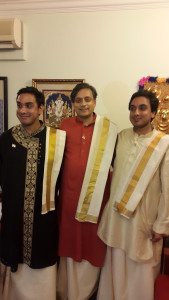
Shashi, what are your thoughts on being at a lit fest with a son who has a highly acclaimed first book out?
Shashi Tharoor: Thrilled. He’s an amazing talent and I am swimming among the stars at his achievement. The reviews in India have been adulatory and I’m looking forward to seeing what the American critics have to say. Kanishk’s twin Ishaan, who writes on foreign affairs for the Washington Post, will also join us to talk about his writing, which has been extraordinarily well-received as well.
What are your earliest memories of exploring the written word together?
Shashi Tharoor: I would read to the boys when they were literally in their cribs – it didn’t matter that they couldn’t speak, as long as they could hear! When they first learned to read, it was a game to get them to read aloud the street signs on the roads wherever we drove. They loved the sense of triumph it gave them and graduated very quickly to reading their own books and soon enough, writing at school. There was no looking back after that!
Kanishk Tharoor: I remember vividly being read to by our parents as a toddler. I can still hear my father’s voice reading from the Little Engine That Could. Even when he was travelling on UN business, he recorded cassettes of certain children’s stories so that we could listen to our favorites before bed.
Ishaan Tharoor: Even though we were New Yorkers since the age of six, our parents surrounded us with their generation’s children’s books from the Commonwealth — Amar Chitra Katha volumes, Arthurian romances, adventure novels by Enid Blyton and the war stories of Biggles. We were lucky to grow up with a rather more expanded imaginative, fictive universe than many of our American peers.
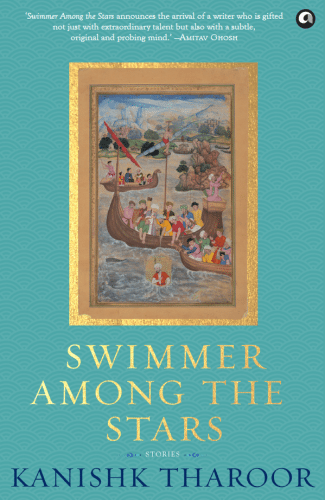
Kanishk, can you tell us how this first book came about?
A book of short stories doesn’t really come together all at once, each story has its own gestation. The oldest story in the collection was written when I was still a teenager, the most recent one was written earlier this year.
Ishaan, what’s life been like writing for WP and giving your perspectives to a global readership?
Ishaan Tharoor: I’ve been a journalist now for over decade — I spent eight years at TIME magazine, four of which were at the magazine’s Asia headquarters in Hong Kong, where I was a roving correspondent. It’s given me a platform to bring my longstanding interests in world affairs and history to bear. When the Washington Post came knocking in 2014 to recruit me as a foreign affairs writer, I couldn’t say no. It’s a thrill to work at an institution that is both venerable and dynamic, on the frontlines of all the world’s big stories and also helping lead the digital transformation of the news industry.
What’s been the best thing about sharing this common passion?
Shashi Tharoor: For me as a father, it has been the joy of sharing the pleasures of books we’ve enjoyed (though their literary tastes, in most respects, differed greatly from mine) and above all, the joy of reading their writing, watching I acquire the quality and distinctiveness it has. As someone who has written both fiction and foreign affairs commentary, I can say with pride that my sons are better at it than their father ever was – and to be able to say it, and mean it, is the best thing about our shared passion.
Kanishk Tharoor: It means we always have something to talk about, and that as a family we can be strong sources of support and equally strong critics.
Ishaan Tharoor: It also means we revel in each other’s success all the more, since the writing life is something we all — including our mother — have embraced.
Why do you think it’s important having this festival of south Asian books and authors in New York?
Shashi Tharoor: The South Asian community is an increasingly visible, and successful, part of the US demographic landscape, and I think it’s important that their concerns and words be heard and read here – both by the diaspora itself and by the rest of the literate American public. Literature helps renew roots and strengthen a consciousness of heritage, and it also allows for an appreciation by US audiences of the rich cultural contribution that South Asians are making to contemporary American – and world — culture.
Kanishk Tharoor: New York is a city of the world, so it’s wonderful and fitting to see a South Asian festival take its place in the city’s literary calendar.
Ishaan Tharoor: Indian writers and authors of Indian descent don’t have much to prove anymore — there are already so many established in the literary firmament. It’s great to showcase the depth of South Asian talent in the world’s greatest cosmopolis.
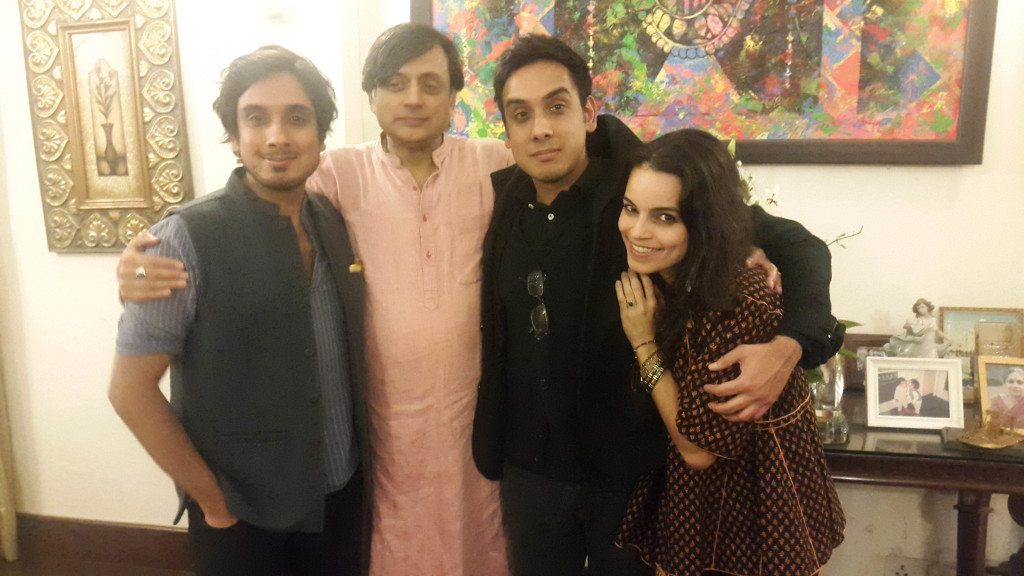
What are you both most looking forward to doing at the fest?
Shashi Tharoor: Being with each other.
Kanishk Tharoor: The line-up is splendid, so I’m looking forward to hearing some excellent conversations.
Ishaan Tharoor: I am looking forward to our panel together. We’ve never done this before!
Can there ever be a collaborative work between the two of you – maybe even the three of you, Ishaan included?
Shashi Tharoor: Never say never! But they do say a camel was a horse created by a committee, so I am not sure what a text authored by three people would look like!
Kanishk Tharoor: We’re each in different cities and so immersed in our own projects and our own kinds of work that it’s never occurred to me. My brother and I at one point chatted idly about working on some wonderfully pulpy fantasy series together (I don’t think my father would be terribly interested in that!). But who knows, maybe we can create something together some time down the road when my father’s schedule is less punishing!
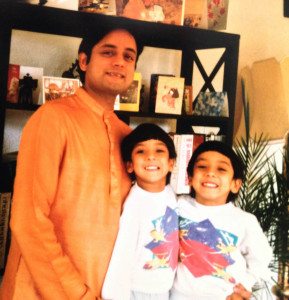
Do you both have very different ways of working?
Shashi Tharoor: I am glad Kanishk has been able to devote himself full-time to writing, a luxury I, alas, have never had. So my working style was both more ad hoc (snatch time whenever I could, especially nights and weekends) and more rushed (knowing my work and other responsibilities could interrupt me any time, I worked at a furious pace). I’ll let Kanishk describe his own work habits but they are certainly more professional than mine could have been.
Kanishk Tharoor: Ishaan keeps very long hours at the Washington Post. My father is constantly working, rarely allowing himself an idle second. At the moment, I’m juggling a few “non-fiction” projects alongside working on a novel, but I doubt my schedule is anything near as strenuous as either that of my brother or of my father.
Ishaan Tharoor: As Kanishk says, I’m the only one of the trio chained to an office and a desk, as well as the rhythms of the news cycle. It’s not exactly conducive to writing long fiction or other book projects after work. Our father, though, is a master of crafting out time and space to write, no matter the relentless demands of his work day.
Finally, a favorite quote from each of you!
Shashi Tharoor: I’m fond of echoing the words of the American humorist A.J. Liebling: “I write better than anyone who writes faster, and faster than anyone who writes better!”
Kanishk Tharoor: Though I’m often moved by passages in prose and lines in poetry, I’m rarely taken by aphorisms. I have always found this pretty sober line from the German philosopher Walter Benjamin to ring true: “There is no document of civilization that is not at the same time a document of barbarism.”
Ishaan Tharoor: At the risk of being a bit cheesy, I’ll trot out a line from one of Kanishk and my favorite novelists: J.R.R. Tolkien. “Not all those who wander are lost” — an aphorism as relevant to our writing lives as it is to Middle Earth!
Read all about the IAAC Literary Festival Here:
Surrounded by Writers, A Readers’Paradise
